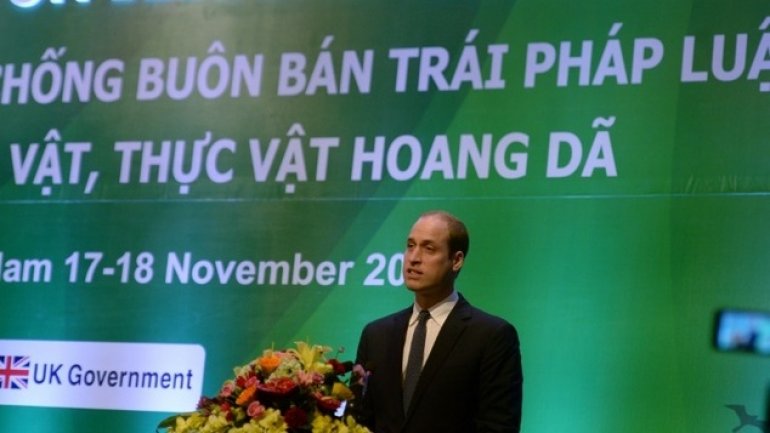Vietnam, neighboring countries asked to close illegal wildlife markets
 foto: AFP
foto: AFP
Vietnam and neighboring countries should shut down illegal wildlife markets and step up their fight against the trafficking of rhino horn, ivory and tiger parts, international conservationists said on Thursday, reports Reuters.
The call was made during a conference on illegal wildlife trade hosted by Hanoi, with Britain's Prince William, President of United for Wildlife, and representatives from over 50 countries among the attendants.
Last Saturday Vietnam destroyed nearly 2.2 tonnes of seized elephant ivory and 70 kg of rhino horns from 23 rhinos and about 330 African elephants, in one of its strongest moves yet to stop illegal wildlife trafficking.
"Your first ever destruction of illegally traded ivory and rhino horn at the weekend provides a powerful example ahead of this conference, and we look forward to hearing about the further actions you plan to take," Prince William told the Hanoi conference.
Countries in the Greater Mekong region including Vietnam have failed to close their illegal wildlife markets, while Hanoi has also made little effort to target major traders and smugglers of illicit wildlife products, WWF and Traffic said in a joint statement.
"Vietnam can no longer turn a blind eye to wildlife crime because the world is watching: the government must use this conference to signal a new start by announcing concrete plans to end the rhino horn and ivory trade and close all tiger farms," WWF Vietnam Country Director Thinh Van Ngoc said.
He urged Vietnam to launch a concerted campaign against wildlife crime, saying Cambodia, Laos, Myanmar and Thailand should follow suit.
The country is a transit point for elephant ivory for consumers in mostly China and the United States to make jewelry and home decorations, while it is a major consumer of rhino horn.
The usage and trading of rhino horn is a criminal offence in Vietnam, but demand is strong due to a long-held belief in rhino horn's medical power as an elixir.
"We expect that Vietnam will demonstrate its commitment in coming years to really clamp down on the trade, transit and source of wildlife," Jorge Eduardo Rios, a manager at the U.N. Office on Drugs and Crime told Reuters Television.
The conference reviewed progress towards commitments made at previous gatherings to tackle wildlife crime, including action to eradicate markets, strengthening law enforcement efforts and promoting sustainable livelihoods and economic development.
It called on governments to involve in the fight.
"Action needs to be taken at all points in the illegal trade chain in source, transit and destination countries," said a statement issued at the conference.
International